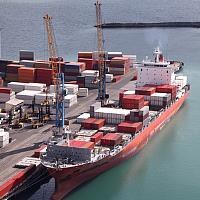(STRASBOURG) – The EU Parliament approved Tuesday a new trade instrument to enable the EU to respond should it or member states face economic blackmail from a foreign country seeking to influence a specific policy or stance.
The new trade instrument is primarily meant as a deterrent, stress the MEPs, but it will allow the EU to fight economic coercion and respond with its own countermeasures.
The Anti-Coercion Instrument (ACI) seeks to protect EU and member state sovereignty in a geopolitical context where trade and investment are increasingly weaponised by foreign powers.
According to the regulation, economic coercion occurs when a non-EU country attempts to pressure the EU or a member state into making a specific choice by applying, or threatening to apply, trade or investment measures. Although this kind of coercion undermines the EU’s strategic autonomy, it is not covered by the World Trade Organisation (WTO) agreement. The WTO dispute settlement mechanism is unavailable for cases of economic coercion specifically, unless they also involve aspects that violate WTO rules.
Under the new rules, the Commission will have four months to investigate potential coercion. Based on its findings, the Council will have eight to ten weeks to decide -by a qualified majority- whether coercion exists. Although the primary objective will be to engage in dialogue to persuade the authorities of the non-EU country to cease their coercion, if those efforts fail, the EU will have a wide range of countermeasures at its disposal. If coercion is found, and member states agree, the Commission will have six months to outline the appropriate response, keeping the Parliament and the Council informed at all stages.
MEPs enhanced the deterrent aspect of the instrument by including a comprehensive list of potential responses available to the EU, including restrictions in trade of goods and services, intellectual property rights and foreign direct investment. Imposing constraints on access to the EU public procurement market, capital market, and authorisation of products under chemical and sanitary rules will also be possible.
Under the new rules, the EU could seek ‘reparation’ from the coercive non-EU country. The Commission may also apply measures to enforce these reparations.
Once formally adopted by the Council – expected in October – the regulation will take effect 20 days after publication in the Official Journal.
Further information, European Parliament


